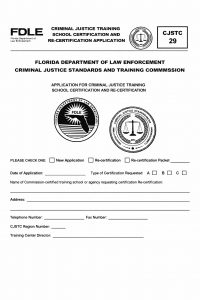Here’s something that catches people off guard: when someone runs a background check on you, they’re not seeing “everything.” No magic database shows your entire history with one click. Instead, background check solutions pull from different systems (state or federal), and what shows up depends entirely on which one gets used.
If you’re applying for a job, renewing a professional license, or going through any official screening process, understanding this difference can save you from unwelcome surprises. Let’s break it down in a way that actually makes sense.
Why Background Checks Matter More Than Ever
Background checks have become standard practice across the board. According to recent industry data, 94% of employers now conduct some form of background screening before hiring. The background check industry itself has grown to $15.54 billion in 2024 and continues expanding at double-digit rates.
Here’s the thing, though: about 6% of these checks turn up a criminal record from the past seven years. That might not sound like much, but it means roughly 1 in every 17 people screened has something on their record. The question is, will the type of check being run actually find it?
What Shows Up on a State Background Check
A state background check stays within state lines. It searches criminal records, court cases, and arrests that happened in one specific state. Think of it like searching your county library. You’ll find what’s there, but you won’t see books from the library across town.
What you’ll typically see:
- Arrests and convictions within that state
- Outstanding warrants or pending cases
- Sex offender registry information
- Sometimes, driving records or professional licenses
When it’s commonly used:
- State-issued professional licenses (nursing, teaching, real estate)
- Local job applications
- Positions in childcare, healthcare, or schools
- Volunteer roles with vulnerable populations
The limitation? If you’ve lived in multiple states, a state check only shows records from the state it searches. A conviction in Texas won’t appear on a Florida state check.
Florida’s Two-Tier System
If you’re in Florida, you should know about the state’s Level 1 and Level 2 background check requirements. As of July 2025, Florida expanded its Level 2 requirements for healthcare professionals and certain other positions.
Level 1 is name-based and searches Florida records plus national sex offender registries. It typically costs around $24.
Level 2 requires fingerprinting and searches both state (Florida Department of Law Enforcement) and federal (FBI) databases. It’s more comprehensive and required for positions working with children, the elderly, or disabled individuals. Fingerprinting services add another $10-25 to the cost.
What Shows Up on a Federal Background Check
Federal checks are different. They look at federal courts and agencies. We’re talking crimes that crossed state lines or broke federal laws.
What you’ll typically see:
- Federal court convictions
- Federal warrants or indictments
- Crimes under federal jurisdiction
Common federal offenses include:
- Tax fraud or evasion
- Drug trafficking across state lines
- Identity theft or counterfeiting
- Bank robbery or embezzlement
- Immigration violations
When it’s commonly required:
- Federal government jobs
- Security clearances
- Immigration or visa applications
- Banking or finance positions
- Jobs with classified information
Here’s what trips people up: federal checks don’t show everyday crimes. That DUI you got in college? Not there. Minor theft or assault charges? Those were prosecuted at the state level, so they won’t appear on a federal check. If you’re preparing for FBI background check, it’s important to understand what records it actually searches.
The Real Difference Between Them
| What | State Check | Federal Check |
| Coverage | Single state only | Federal courts across all states |
| What it finds | State-level arrests and convictions | Federal crimes and violations |
| Common crimes | DUI, theft, assault, drug possession | Fraud, trafficking, tax evasion, terrorism |
| Where records come from | State courts and local police | U.S. District Courts and FBI |
| Best for | Local employment, state licenses | Federal jobs, security clearances |
The bottom line: state checks look at what happened in one state’s courts. Federal checks look at cases prosecuted by federal prosecutors, regardless of where you live.
When You Need Both (And Why)
Sometimes one check isn’t enough. Many thorough background screenings run both state and federal checks to get the full picture.
You might need both for:
- Healthcare positions requiring national credentials
- Moving to a new state for work
- Adoption or foster care applications
- Immigration processes
- Jobs involving financial services or sensitive data
- Teaching positions in certain districts
If you’ve lived in multiple states, relying only on one state check leaves gaps. That’s why comprehensive screenings often include federal background checks, state checks for each state you’ve lived in recently, and county-level searches for your current residence.
The Fingerprinting Factor
Most federal background checks and many official state checks require fingerprinting. This isn’t just bureaucratic red tape. It ensures accuracy. When two people share the same name and birthday (which happens more often than you’d think), fingerprints prevent mix-ups.
Professional fingerprinting services capture your prints digitally and submit them directly to the FBI or your state’s law enforcement agency. You can choose between Live Scan or ink fingerprinting methods depending on what’s required. The process takes about 15 minutes, though results can take anywhere from a few days to several weeks, depending on the agency’s workload.
How to Prepare for Your Background Check
Getting ready for a background check doesn’t have to be stressful. Here’s what helps:
Bring proper ID. A valid driver’s license or passport is usually required.
Know what’s being checked. Ask the employer or agency whether they’re running state, federal, or both. It helps you know what to expect.
Review your own history. If you’ve lived in multiple states, try to remember where and when. Some agencies ask for an address history.
Be honest on forms. Trying to hide something usually backfires. Background checks are designed to find discrepancies.
Budget for fees. State checks typically run $24-40. Federal checks cost around $18. Fingerprinting adds $10-25. Some professional licenses bundle everything into one fee.
What If You Have a Record?
Having something on your record doesn’t automatically disqualify you. Context matters. Many employers use what’s called “individualized assessment.” They consider the nature of the offense, how long ago it happened, and whether it relates to the job.
In Florida and many other states, certain offenses can be sealed or expunged, which means they won’t show up on most background checks. If you have an old conviction that’s affecting your opportunities, it might be worth looking into whether you qualify for expungement.
The Bottom Line
Background checks aren’t all the same. State ones look at local records. Federal ones look at national crimes.
Once you know which applies and what it’s looking for, it becomes less mysterious. Understanding this difference means you show up prepared instead of stressed.
Most checks are done in a week or two. Bring your paperwork, be honest, and you’ll be fine. Background checks keep things safe for everyone.









